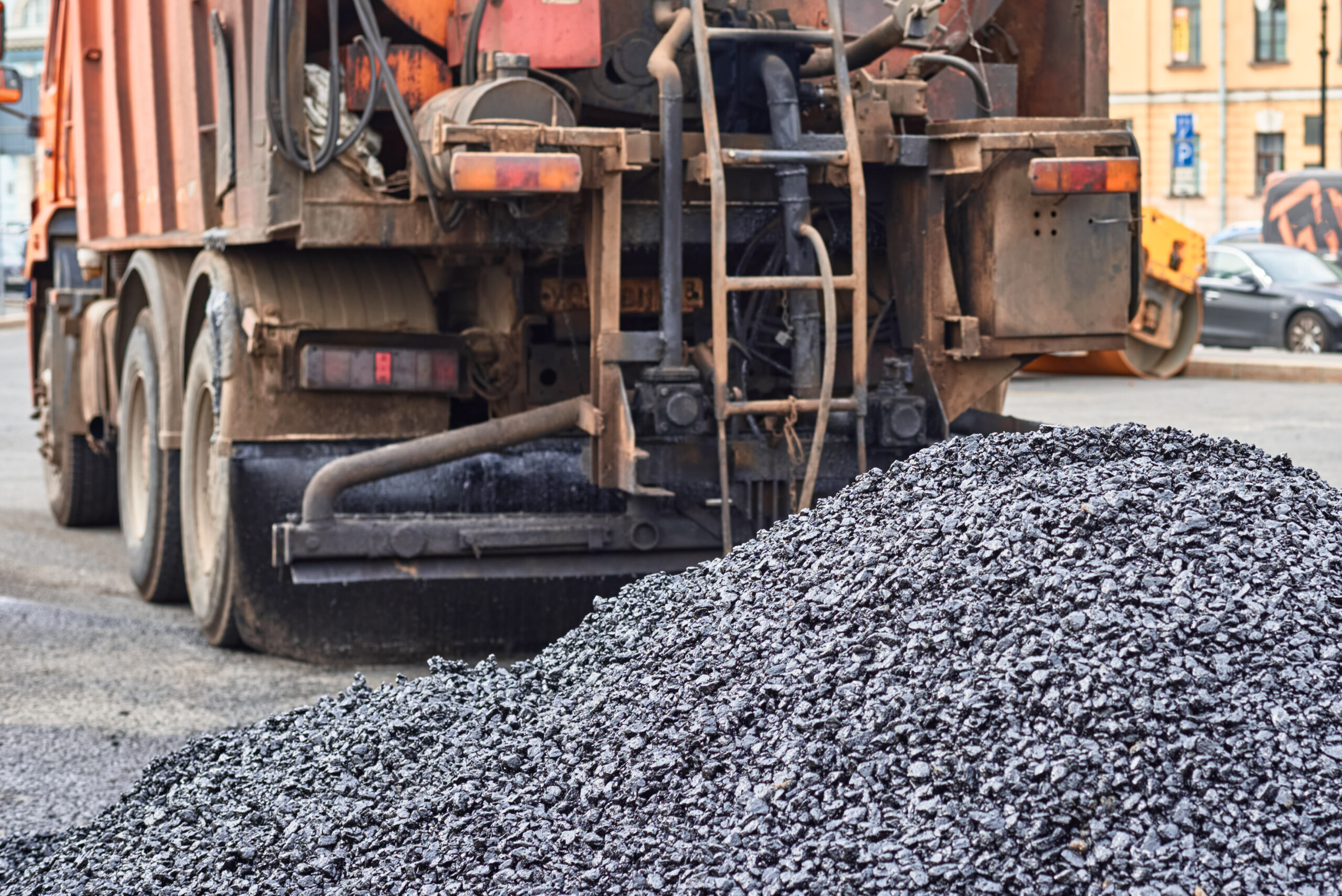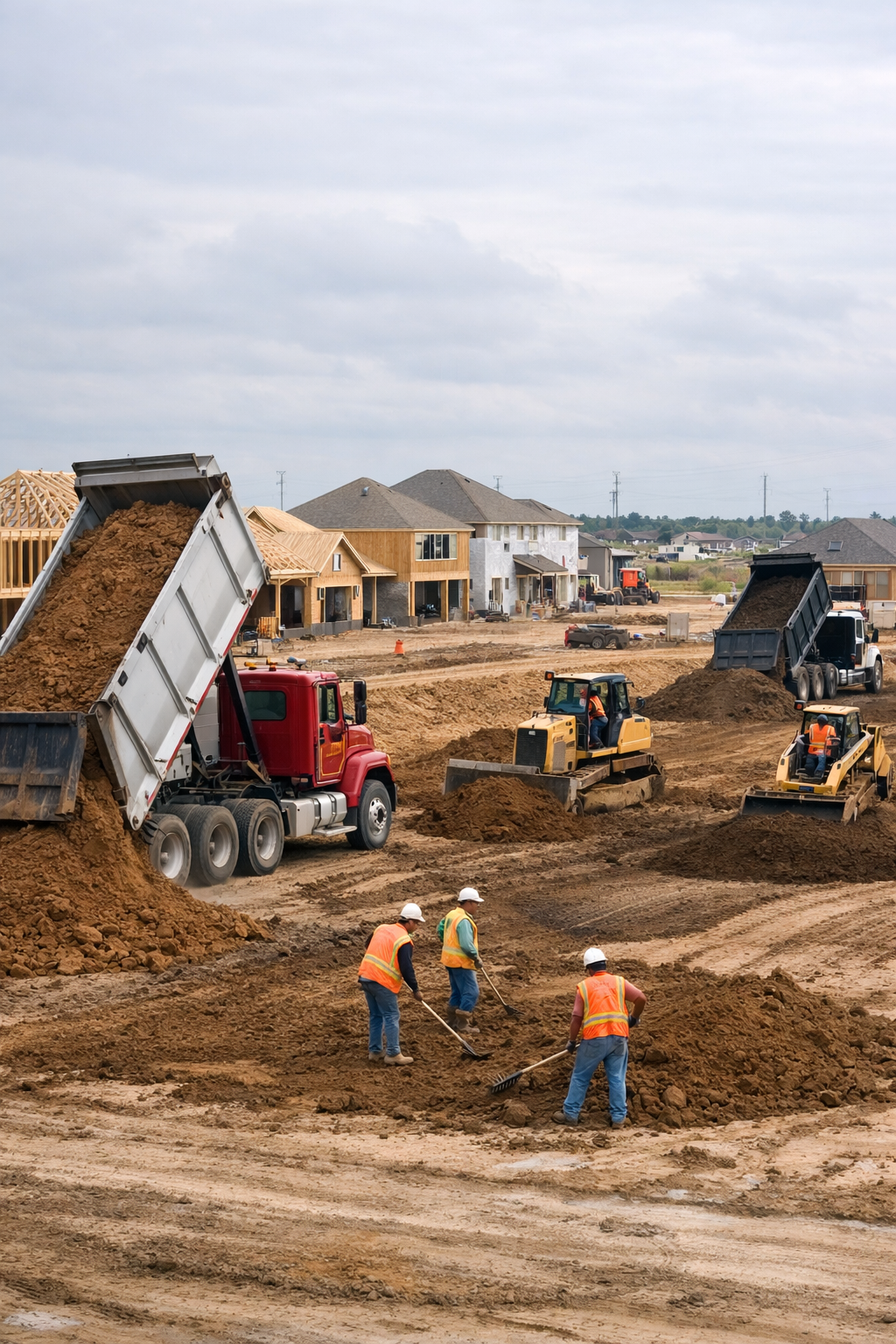Planning and dependable material sourcing is key to efficiently managing a construction or landscaping project. Whether you have a DIY driveway project or are an experienced contractor with ongoing needs for asphalt milling, we’ll explore everything you need to know about one ton of asphalt milling – what it weighs, how much area it can cover, and what to expect when planning your purchase.
What Does One Ton of Asphalt Millings Weigh?
As a standard weight and measure, the physical weight of 1 ton of asphalt milling is the same as all other tons – 2,000 pounds. However, the total volume of this weight can vary slightly depending on the density, moisture levels, and coarseness of the millings.
How Much Area Does One Ton of Asphalt Millings Cover?
One ton of asphalt milling typically covers roughly 80 to 100 SQ Feet, assuming a depth of 2 inches. However, when in application, other factors can impact the total coverage area:
- Depth: Increasing the depth reduces the coverage area. Adding a 3-inch top layer will naturally require more material than topping with a 2-inch layer.
- Compaction: Asphalt millings compact well, so the final coverage area may decrease slightly after the material is rolled or tamped.
- Base Surface: If the base surface is uneven or has depressions, a level finish may require more material to achieve an even, flat surface.
For larger projects, calculate the total square footage of your space and adjust for the desired depth to estimate how many tons of asphalt material you’ll need. If you overestimate, the worst thing that will happen is you’ll have excess material on hand. Underestimating can leave you short when you approach the project finish line.
What is the Cost of One Ton of Asphalt Milling?
Several factors, including your location, general availability, and the material source, can impact the cost of asphalt milling. You can expect to pay between $12 and $40 per ton.
Here’s a closer look at other considerations that may influence price:
- Transportation Costs: Milling created from local roadwork projects may be more affordable since long-distance transport isn’t needed.
- Supplier Markups: If a supplier includes additional processing or delivery fees, these markups can drive higher prices.
- Market Demand: Increased demand during peak construction seasons can surge prices.
Not surprisingly, asphalt millings are a popular choice for projects with budget constraints.
Advantages of Asphalt Milling
If you’re weighing the viability of using asphalt millings or comparing them with other materials, keep these benefits in mind:
- Cost Savings: As a recycled product, asphalt millings are usually cheaper than alternatives like gravel or new asphalt.
- Sustainability: Repurposing old asphalt reduces waste and supports eco-friendly construction practices.
- Durability: Asphalt millings form a hard, erosion-resistant surface that, when compacted, easily handles moderate traffic.
- Easy Maintenance: Surfaces created with asphalt millings are sturdy, making them a practical choice for driveways and paths.
How to Estimate Your Project Needs
To calculate how much tonnage of asphalt milling you’ll need, determine the total square footage of your project area. Use the following formula as a guideline:
Take the area you need to cover in square feet and multiply it by the depth in inches. Divide the sum by 108.
Tons Required = (Area in square feet × Depth in inches) ÷ 108
Let’s say you are working on a 500-square-foot driveway and want to install a 2-inch layer of asphalt millings:
Tons Required = (500 × 2) ÷ 108
Tons Required = 9.26 tons
Ideally, you want to purchase enough material to cover your space while accounting for compaction and depth adjustments.
How to Source Asphalt Millings
Finding reliable sources for asphalt milling can be simple if you know where to look:
- Local Suppliers: Many construction supply companies stock recycled asphalt products.
- Roadwork Projects: Municipal or state roadwork projects often generate millings that may be available for sale.
- Online Marketplaces: Platforms like Borrow Pit allow buyers and sellers to connect, making finding materials like asphalt millings easy for quick pickup or delivery.
Smart Choices for Every Project
Understanding the cost, coverage, and benefits of asphalt millings can help you make the best decision for your project, whether it is a public works project or a smaller private job site.
Whether paving a new access road, refreshing a driveway, or creating a base layer for a larger construction project, this affordable and sustainable material is worth consideration.
Explore local suppliers, check out municipal sources, or sign up for Borrow Pit to find asphalt millings near you.




